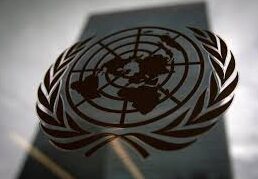A United Nations (UN) body has ruled that the United States and the United Arab Emirates share responsibility for holding an Afghan refugee in detention in Abu Dhabi for more than two years, a case rights groups say reflects the plight of thousands of others.
The man, identified only as “Mr. B” for his protection, was a former police colonel who worked with U.S. forces in Afghanistan and faced threats from the Taliban. He and his family were evacuated in 2021 during the chaotic U.S. withdrawal from the country under President Joe Biden.
According to U.N. documents, private U.S. operators told him he would stay in the UAE for just two weeks before being transferred to the United States. Instead, he spent more than two years under constant surveillance inside the Emirates Humanitarian City, a large housing complex the UAE says is used for evacuees.
“The Working Group thus finds the United Arab Emirates and the United States of America jointly responsible for Mr. B’s arbitrary detention,” the U.N. panel wrote in a report released this week.
The five-member group, which investigates cases of unlawful detention for the U.N. Human Rights Council, called on both countries to offer compensation and reparations. It said the U.S. violated the 1966 International Covenant on Civil and Political Rights, a treaty guaranteeing basic freedoms.
The U.S. mission in Geneva did not respond to requests for comment. The State Department has previously said it is committed to resettling eligible Afghans and noted that more than 100,000 have already been relocated since 2021.
Mr. B was finally transferred to the U.S. in early 2024 and is now free.
The UAE did not formally reply to the U.N. process and is not a signatory to the treaty, though the panel said its actions violated the Universal Declaration of Human Rights. “The circumstances clearly demonstrate that Mr. B. was held there against his will, prohibited from leaving and subjected to conditions that meet the established criteria for deprivation of liberty,” it said.
The UAE has not commented on the report. Officials have previously insisted evacuees are safe and well cared for, citing access to housing, food, health services, education, and counseling.
Human Rights Watch reported in 2023 that the Emirates Humanitarian City functioned “essentially as a prison,” with as many as 2,700 Afghans confined inside.
Falah Sayed of MENA Rights Group, which submitted Mr. B’s case, said the ruling could apply to thousands of other Afghans still held in the complex.
While the U.N. Working Group cannot enforce its decisions, its findings are often used in legal proceedings and have led to the release of detainees in the past.






